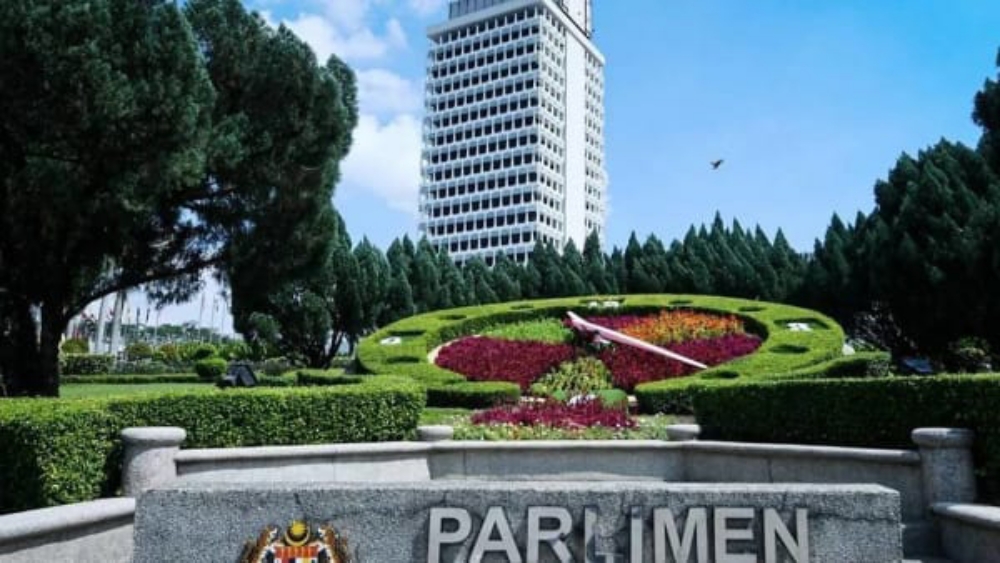
The Parliament building in Kuala Lumpur. – Bernama photo
THE system of choosing the government for the country is being restored, beginning with the nominations of candidates for election yesterday.
The second phase of the process of electing the lawmakers will be on Saturday, Nov 19, 2022, polling by secret ballots.
Barring any untoward incident such as a major national disaster, which may make a declaration of emergency necessary, Malaysia will have a newly-elected government around midnight of Saturday or early Sunday morning, as soon as the final results of the elections are certified correct by the Election Commission (EC). This only happens if a political party or a coalition of parties can gather the simple majority of elected members of the 222-member Parliament before they can claim the mandate to form the next government.
We are looking forward to the formation of that government. This time around, the appointment of the Prime Minister will be carried out in strict compliance with the provisions of the Constitution (Article 43 of the Federal Constitution).
While I am at it, I might as well copy out the relevant provision of the Constitution (valid as at March 31, 2017) for the reader to keep.
That article says:
“43. Cabinet.
1) The Yang Di-Pertuan Agong shall appoint a ‘Jemaah Menteri’ (Cabinet of Ministers) to advise him in the exercise of his functions;
2) The Cabinet shall be appointed as follows, that is to say:
a) The Yang Di-Pertuan Agong shall first appoint as ‘Perdana Menteri’ (Prime Minister) to preside over the Cabinet a member of the House of Representatives who in his judgment is likely to command the confidence of the majority of that House, and;
b) He shall on the advice of the Prime Minister appoint other ‘Menteri’ (Ministers) from among the members of either House of Parliament.”
Undi18
It is hoped that the new voters, the Undi18, will do justice to their adult suffrage on the polling day; they will be casting their votes for the first time. Whether or not their votes will make any difference to the overall results of the elections remain to be seen. There will be post-mortems on the results of the elections, but until then, we will not know whom the majority of the automatically-registered voters have voted for.
I know how the first-time voter feels: pride in the knowledge that the power to choose a legislator by ticking the name of the candidate of choice on a piece of paper. I had the same sense of responsibility when I first voted in the general election in July 1970.
What’s a good MP?
I don’t know about you. My ideal MP will be a good lobbyist in Kuala Lumpur. He may not be an orator, but he will do his duty to his constituents if he is a good lobbyist inside and outside the Parliament House.
I would be grateful if the candidate whom I will vote for will initiate a private motion about human rights. I refer to Article 26 of the United Nations Declaration of the rights of the Indigenous Peoples (UNDRIP) 2007, which Malaysia has acceded to.
The relevant provisions are as follows:
“Article 26
1) Indigenous peoples have the right to the lands, territories and resources which they have traditionally owned, occupied or otherwise used or acquired.
2) Indigenous peoples have the right to own, use, develop and control the lands, territories and resources that they possess by reason of traditional ownership or other traditional occupation or use, as well as those which they have otherwise acquired.
3) States shall give legal recognition and protection to these lands, territories and resources. Such recognition shall be conducted with respect to the customs, traditions and land tenure systems of the indigenous peoples concerned.”
My ideal MP will know that ‘states’ in that Article 26 (3) include the country of Malaysia.
He is in the right place to move a motion to legally recognise the rights over lands, territories and resources of Sarawak’s indigenous peoples.
My ideal MP should be familiar with the relevant constitutional powers of the Federal Government to legislate matters relating to rights over land. He would refer to Article 76 (Power of Parliament to legislate for States in certain cases) Sub Clause (1) (a) of the constitution stating: “Parliament may make laws with respect to any matter enumerated in the State List, but only as follows, that is to say:
(a) For the purpose of implementing any treaty, agreement or convention between the Federation and any other country, or any decision of an international organisation of which the Federation is a member.”
While UNDRIP is not a treaty or a convention, any of its decision is obviously the decision of an international organisation. The draft Resolution of UNDRIP, proposed by the Human Rights Council of the United Nations, was supported by Belgium, Bolivia, Costa Rica, Cuba, Denmark, Dominican Republic, Ecuador, Estonia, Germany, Greece, Guatemala, Hungary, Latvia, Nicaragua, Peru, Portugal, Slovenia and Spain.
I will vote for a candidate who subscribes to UNDRIP and who initiates legislation in Parliament to clear any doubt about the legal status of indigenous in terms of their rights over lands in Sarawak once and for all.
That’s the man, or the woman, we need to represent us in Kuala Lumpur – my ideal MP.
from Borneo Post Online https://bit.ly/3T7lDgy
via IFTTT

No comments:
Post a Comment